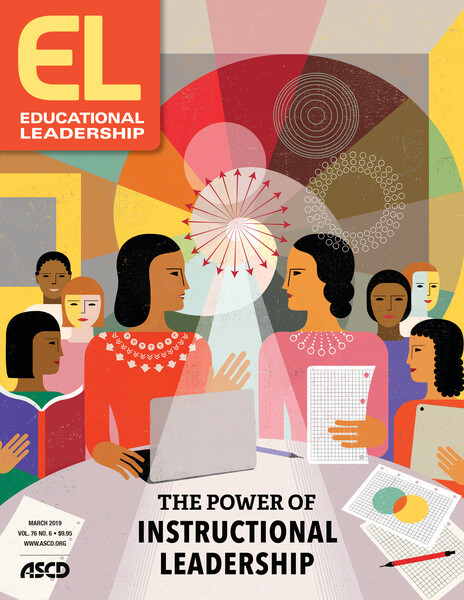Listen to Feedback—Even When It Stings
I was given feedback questioning the effectiveness of my teacher observation reports. My colleague asked, "What is the story your observations tell about this teacher's professional learning journey this year?" I was perplexed. In my mind, my reports were accurate, well-written, and comprehensive. My initial reaction was to feel inadequate and attacked by my colleague's words, but I knew I needed to be open to learning, so I subsequently spent a great deal of time reflecting and brainstorming with my principal to generate an action plan in response to the feedback.
We put systems in place to track observational feedback and to guarantee that we revisit growth toward schoolwide and teachers' instructional goals. This was a game-changer in the cohesiveness of the reports and has shown strong impact in student achievement, pedagogy, and teacher confidence.
And I personally made a huge paradigm shift regarding feedback. Instead of viewing it as criticism, I now see it as information, given with the intention of helping someone to learn and grow. Acting on feedback can push you out of your comfort zone to places you never imagined you'd be.
—Annmarie Hogan, assistant principal, PS 26, Staten Island, New York
Take a Walk in Their Shoes
When I was taking over as chair (eight years ago now), I was in a good position. The outgoing chair wasn't well liked, so everyone was telling me how happy and relieved they were that I was now leading the department. I boldly thought that I could unify and heal us. What I learned was that, although I did make progress creating a more unified department, it was a much more difficult task than I'd originally thought. At times, I had to make unpopular decisions or enforce administrative decisions that I didn't really agree with. It's easy to look in from the outside at a leader and critique their performance; it's another thing to live in their shoes. When I hear teachers critiquing administrators, I try to remind them that we're all working toward the same end and that it's important to remember that.
—John Copenhaver, 7–12 English department chair, Flint Hill School, Fairfax, Virginia
A Humble Lesson
I colead the curriculum alignment, adoption, and creation of units and pacing guides for world language for my district. I jumped in headfirst, eager and excited for the impact my role would have on student learning and teacher growth. The work meant a mind shift from a traditional to a performance-based classroom for many teachers, and a textbook would not be the sole curriculum.
I knew the research that backed up these changes and had seen the impact firsthand in my own classroom. I just assumed teachers would jump on board. However, I underestimated the emotional reaction to change, how important building relationships was first, and the level of importance of the behind-the-scene maneuvering that had to happen. I had to humble myself, listen more, and realize that resistance can often be a lack of clarity. I had to engage, empower, and equip the teachers before change could happen.
—Alissa Farias, data coach, Tacoma Public Schools, Tacoma, Washington






